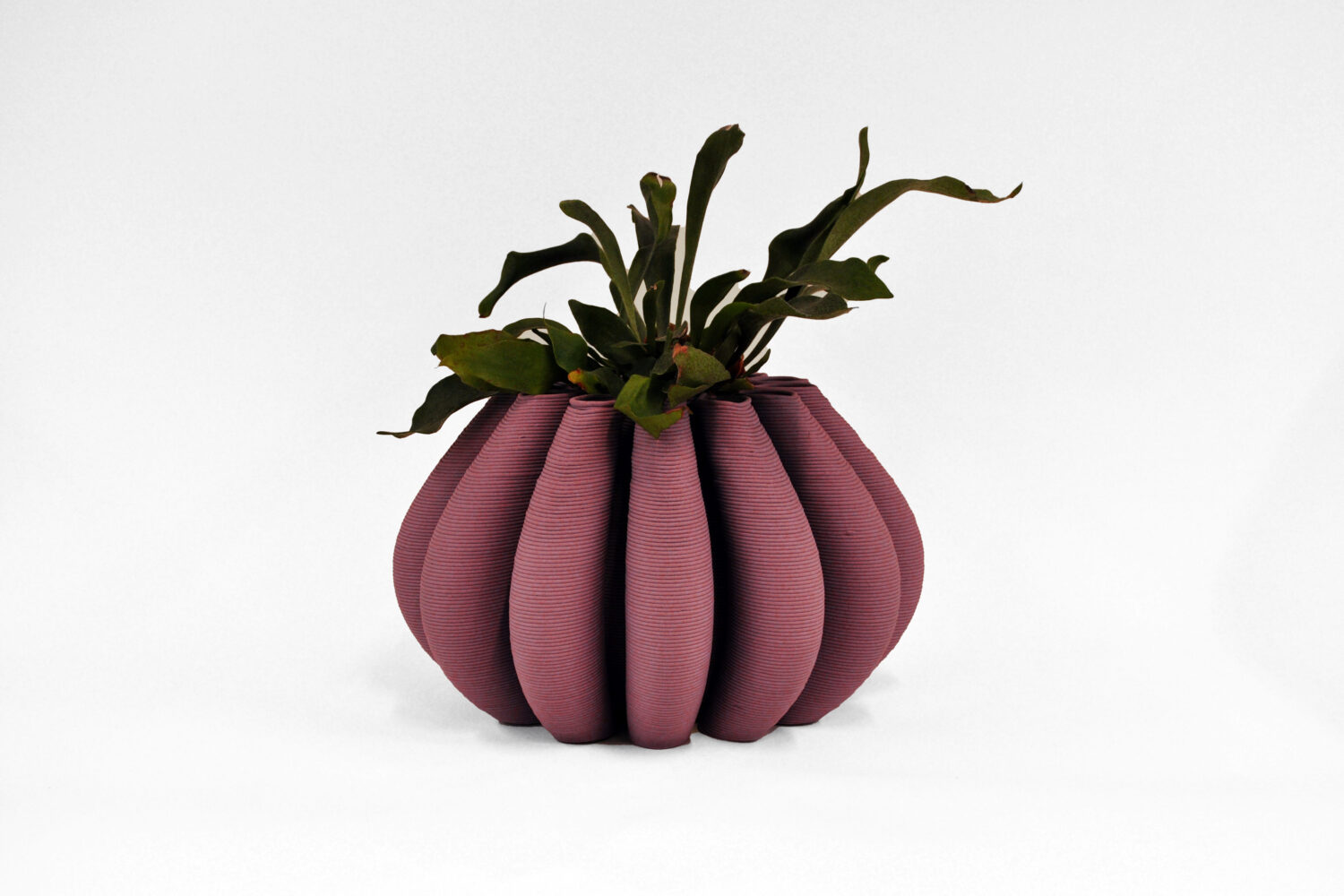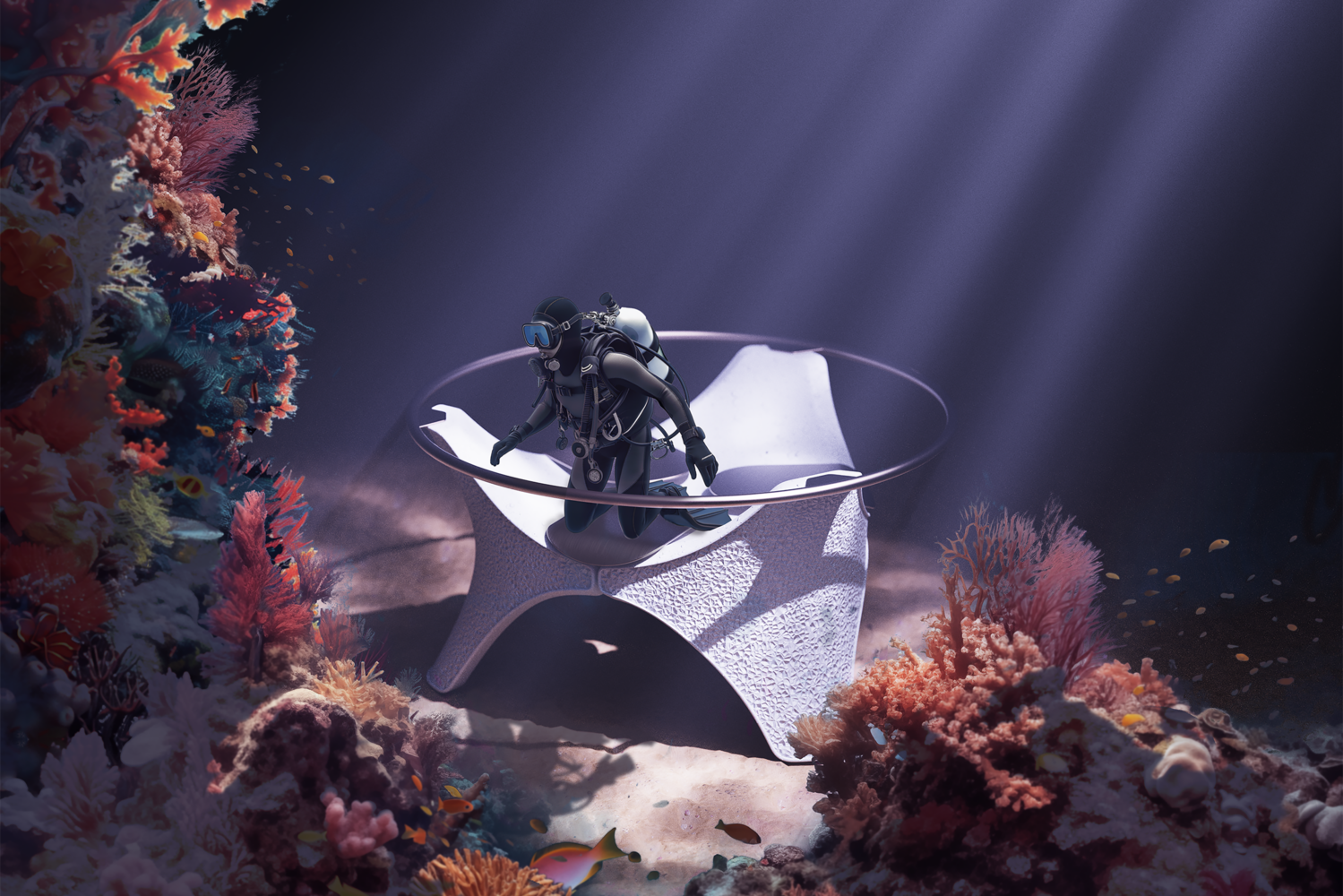The Label4Future project aims to develop sustainable solutions together with companies – supported by digital transformation and innovative approaches from cultural and creative industries.
Each of us living in the EU generates an average of 180 kg of packaging waste per year. The EU produces a total of 2.2 billion tons of waste every year. The consequences in terms of biodiversity loss, greenhouse gas emissions and dependence on raw materials are fatal. The idea of a circular economy, in which materials and products are reused, repaired and recycled instead of the traditional throwaway economy, is therefore increasingly becoming the focus of political and social debate. From the European Commission’s New European Bauhaus cultural policy initiative to the Green Deal, the EU has presented various industrial and social strategies in recent years to ensure a more climate-friendly future. But where to start?

In line with EU regulations, the Label4Future project was launched with the aim of promoting the circular economy in the emerging regions of the EU, including Slovakia, Slovenia, Bulgaria, Romania and Poland. The focus is particularly on the plastics industry, which is considered to be the main source of negative environmental impacts and at the same time an important driver of economic growth and social stability in Europe. “ Connecting this specific industrial sector with the innovation that promotes sustainable growth and circular economy can provide a use case for other less challenging or less urgent sectors and focus on the urgency of an ecological transition as a key element of the EU industrial strategy”, explains Project Manager European Projects & Festival Pablo Bes Alonso. Only with cross-sectoral and cross-border cooperation can Europe become competitive and more sustainable, while preserving economic and social values such as responsible growth, strong communities and opportunities for all as pillars of a pan-European identity. But a circular economy is not only beneficial for the environment. By 2030, it could generate up to 4.5 trillion dollars in economic opportunities and revenue worldwide through job creation and savings in raw materials and waste management (Ellen MacArthur Foundation).

Label4Future’s initiative focuses precisely on the developing regions of the EU. The hope is to increase the economic importance of these regions, help local stakeholders understand future challenges and demonstrate the regional potential for resource efficiency and sustainable development. Creating new jobs, reducing waste and pollution and improving access to essential goods and services – by implementing the circular economy model, emerging EU regions could become drivers of sustainable development. Specifically, Label4Future aims to connect Quadruple Helix stakeholders from different regions and test innovative projects by using design practices, new technologies and media art approaches. The Quadruple Helix approach divides the economic sphere into four spheres – university, industry, government and civil society – whose relationship creates innovation and prosperity. These stakeholders aim to build the capacity of small and medium-sized enterprises (SMEs), local authorities and research institutions in transitioning regions, improve the linking and implementation of value chains, strengthen regional ecosystems and promote the transition to a more circular and sustainable economic model. The role of media art in this context lies primarily in opening up new perspectives through its interactive, generative and immersive methodology.
„For the Label4Future project, mediation and exploration through the cross-sectoral collaboration of stakeholders within the framework of new media art offers redesign, chance, liveliness, variability, interactivity, connectivity and disruption.“
Pablo Bes Alonso, Project Manager European Projects & Festival
In practice, this means that companies from the plastics industry implement projects aimed at integrating sustainable materials or recycling. For example, one project is developing innovative packaging solutions for the catering industry that are compostable or can be recycled. Another project focuses on environmentally friendly medical footwear, and yet another on 3D-printed protective padding for sports activities based on cellular structures. In addition, a materials laboratory is working on the production of 100% recycled plastic tiles – with the aim of transforming plastic into the marble of the future.

Label4Future is also involved in supporting SMEs while they implement their projects – business models and production processes are monitored and improved, and innovations are tested through cross-border cooperation. Efforts are also made to strengthen the competitiveness of companies and demonstrate innovative circular economy models. This makes it obvious that sustainable solutions are not only desirable, but also feasible.
This action and innovation reflect the theme of the Ars Electronica Festival this year: “HOPE – who will turn the tide”. Players from the business world are taking action to create hope – for a more sustainable future. This year, selected companies from the plastics industry are therefore coming to the Ars Electronica Festival as part of the Label4Future initiative: the opportunities range from coaching & mentoring sessions, residencies, test productions and study visits to the presentation of their project at this major event. Under the title “Imagining the Possible Future Scenarios”, the participants selected in an open call will also discuss their approaches with creative experts during a two-day workshop on September 5 and 6. The aim is to develop innovative future scenarios for the plastics industry through collaboration between SMEs and creative experts. This approach is in line with the conceptual model of Ars Electronica, which brings together art, technology and society to find new perspectives and solutions for complex social challenges and speaks to the mission of Ars Electronica Platform Europe to support art-driven innovation.
Further information and tickets for the Ars Electronica Festival 2024 ‘HOPE – who will turn the tide’ can be found here.
LABEL4FUTURE is funded by the European Union (European Innovation Council and SMEs Executive Agency EISMEA) under grant agreement No. 101133162.
